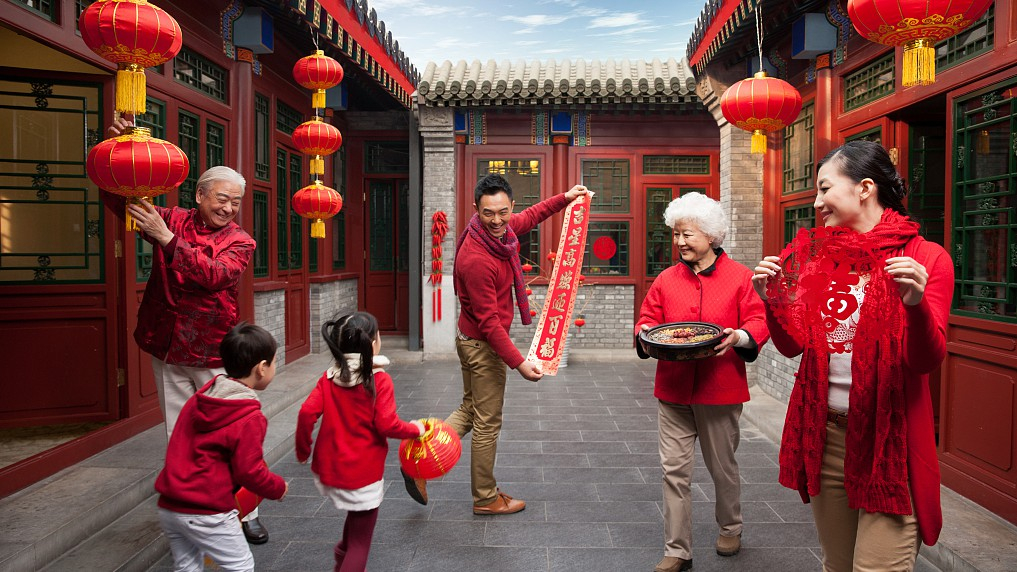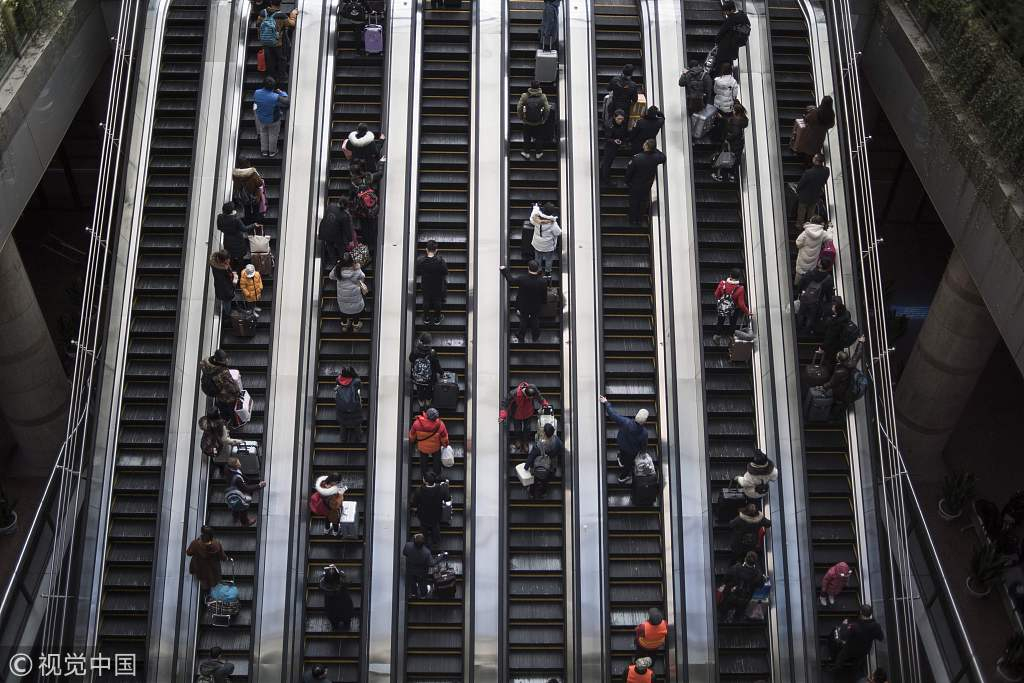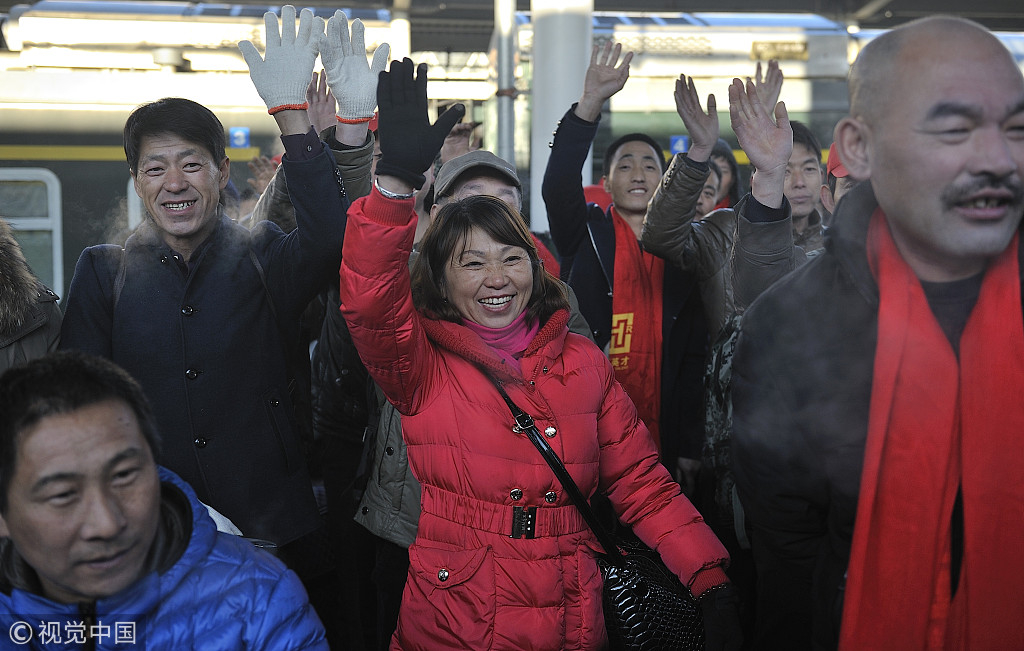
Opinion
12:43, 21-Jan-2019
Opinion: New Spring Festival travel mode aims at balancing work, family
Wei Nanzhi

Editor's note: Wei Nanzhi is a research fellow at the Chinese Academy of Social Science. The article reflects the author's opinions, and not necessarily the views of CGTN.
The traditional "individual-family-state" structure is at the heart of Chinese society. Such an arrangement is two pronged: On the one hand, a family, or to a larger extent, a household and a clan, provides support, livelihood, and long-term safety for the individual; on the other hand, a state, the combination of country and family, advocates the "rule by courtesy" and "rule by virtue," emphasizes the strong institutionalization of the family and makes familism even more central in the society than in others.
China has a long history of farming, coupled with a huge rural population. The traditional Chinese calendar is known as the agricultural calendar or lunar calendar, and divides the year into agricultural seasons and determines the dates of traditional Chinese festivals, among which, Spring Festival, or Chinese New Year, is the most important.
It has been a long-held tradition for most Chinese people to return to their hometowns for family reunions on the eve of the Chinese New Year and celebrate the Spring Festival all together.
Since 1980s, Chinese workers have increasingly left their hometowns for big cities and coastal regions in search of better job opportunities. But every year, they make the trip back to their home villages to mark the Spring Festival with their relatives.
Heading home helps them achieve their aspiration of reconnecting with family members and friends, and welcome the new year together. In this sense, in regard, family reunions and homecoming are analogous.

Travelers rush to the waiting rooms before boarding trains at the West Railway Station in Beijing, as people depart the capital ahead of the Lunar New Year, February 10, 2018. /VCG Photo
Travelers rush to the waiting rooms before boarding trains at the West Railway Station in Beijing, as people depart the capital ahead of the Lunar New Year, February 10, 2018. /VCG Photo
Nonetheless, the Spring Festival travel rush is not always an enjoyable experience: sold-out tickets, overcrowded trains and buses, expensive cabs...
Over the past few years, a growing number of young people have been inviting their parents to leave their hometowns and reunite with them at their new residences in big cities – a trend that has come to be known as reverse Spring Festival travel rush. It is a revolutionary phenomenon of Chinese society because it no longer equates family reunions to homecoming.
For the first time in Chinese history, many in China are separating themselves from their places of birth. Why?
China has transformed from an agricultural society to an industrial one, even post-industrial in first-tier cities.
Work pressure, a fast-paced life and unfamiliar communities in big cities are modern elements strange to the traditional agricultural Chinese society. For young generations, the meaning of family refers to the nuclear family – parents and children – and not the extended version with all sorts of relatives. Thus, some of them think that, "Endless banquets and door-to-door visits for new year greetings every year have made the festival dull."

Migrant workers wave after arriving to their hometown at Qiqihar Railway Station of Heilongjiang Province, February 13, 2018. /VCG Photo
Migrant workers wave after arriving to their hometown at Qiqihar Railway Station of Heilongjiang Province, February 13, 2018. /VCG Photo
The Chinese family structure has transformed from a traditionally rigid and hierarchical one to a child-centric one as the one-child policy and urbanization left their marks on family dynamics. Meanwhile, the state is now guaranteeing security to most people, especially residents of cities and towns. The role of the family has changed.
Some young people regard their invitation to their parents to join them in first-tier cities as "saving them from having to feed numerous relatives and giving gifts of money."
So a "state-individual" social structure has emerged and is gradually replacing the traditional "individual-family-state" one.
Choosing not to go back home but instead reuniting the family in cities where children are working is not only a natural result of the aforementioned changes, but also a rational choice due to economic reasons. As a consequence, the "reverse" Spring Festival travel rush is a way to balance work and family, and reconcile traditional values with modern life.
(If you want to contribute and have specific expertise, please contact us at opinions@cgtn.com.)

SITEMAP
Copyright © 2018 CGTN. Beijing ICP prepared NO.16065310-3
Copyright © 2018 CGTN. Beijing ICP prepared NO.16065310-3